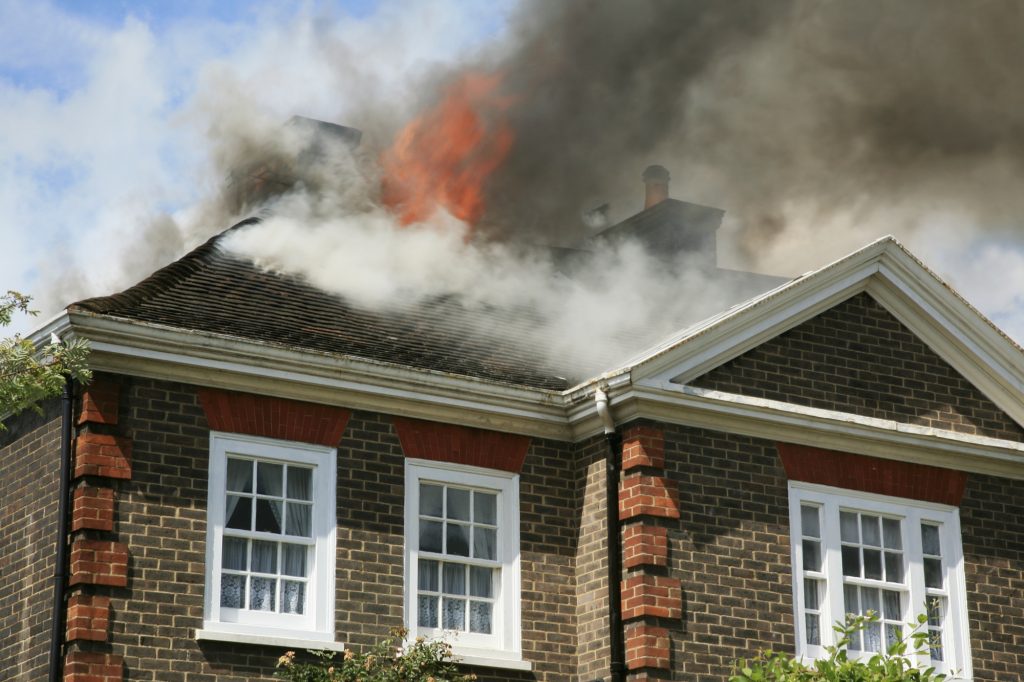What Are A Landlord’s Obligations To Their Tenants If Rented Property Is Made Uninhabitable By Fire Or Flood?

Although not a common situation, from time to time properties are rendered uninhabitable by disasters such as fire and flood. In such circumstances there is a lot for both landlord and tenants to sort out in stressful circumstances and tenants may be coming to terms with injury and loss of belongings. It’s therefore important to understand what obligations the landlord has.
Does the Landlord have to provide alternative accommodation?
14/08/2017
The most commonly asked question is does the landlord have a duty to rehouse the tenant? Generally, it is not the landlord’s responsibility to find alternative accommodation for the tenant if a property is rendered uninhabitable due to fire or flood. The Local Authority does have a duty to rehouse the tenant in such circumstances. Where the Local Authority believes someone to be homeless and in priority need for accommodation, there is an interim duty to accommodate.
Does the landlord have to pay for alternative accommodation?
Whether the landlord is obliged to pay for the costs of re-housing a tenant will depend on whether the landlord was breach of their repairing obligations or not and whether the fire or flood was their fault. E.g. if the fire was caused by faulty wiring caused by the landlord’s lack of maintenance or the tenant notified the landlord of a defect with the water pipes but the landlord didn’t deal with it and a pipe burst.
In each case how badly the property has been damaged and whether alternative accommodation was reasonable and necessary must be decided on an individual basis, there is no set of rules to determine this.
Rent
Whether rent is still payable depends on the terms of the tenancy agreement (‘AST’). Many ASTs have a clause where the Landlord agrees to return to the tenant any rent payable for any period while the dwelling is rendered uninhabitable by fire or other such disaster. In theory, if there is no such provision, the tenant remains bound to pay the rent even though the house is no longer inhabitable because the land remains. In practice, this would be very difficult to enforce.
Insurance
All landlords should have buildings insurance on the property and this will often cover both, the rent lost to the landlord and payment for alternative accommodation for the tenant. However, if the tenant wishes to have alternative accommodation paid for by the landlord’s insurer the tenant must continue to pay the rent for the destroyed house because otherwise they would be living for a period entirely rent free. Where alternative accommodation is paid in this manner by the insurer, they will not usually pay for landlord’s loss of rent as the tenant has responsibility to continue to pay.
What if the tenant wants to leave the property?
The AST may provide for short notice termination of the tenancy in event of the property becoming uninhabitable through fire or flood. Additionally, if the tenant wants to bring the tenancy to an end, they can hand the keys back and offer to surrender. You can accept this surrender. You would need a deed of surrender to agree this in writing and executed as a deed by both parties in the presence of witnesses. This is probably the simplest way to bring the tenancy to a close without either party needing to give notice. Alternatively, a tenant in a statutory periodic tenancy can give notice or the Landlord can serve Section 21 notice.
Recommendations
- Make sure you have sufficient insurance in place to cover disaster such as fire and flood
- Check the provisions of your insurance policy so that you know what it will cover and what it won’t in the event of fire or flood
- Check the terms of your tenancy agreement so that you know what obligations both parties have
- Make sure that you have installed smoke alarms and carbon monoxide detectors at the property as required by The Smoke and Carbon Monoxide Alarm (England) Regulations 2015



